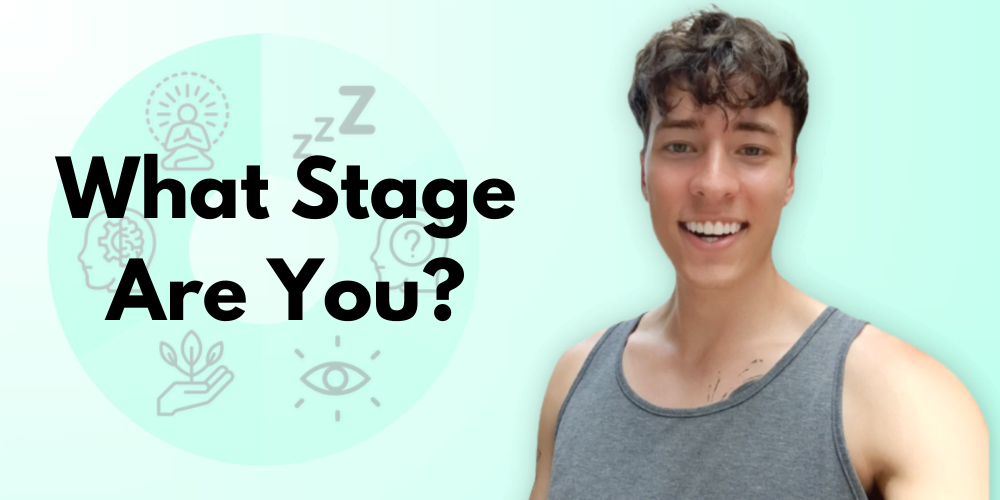The Benefits Of Fasting And Meditation
Meditation and fasting are two practices that have been used for centuries to promote physical, mental, and spiritual wellbeing. Fasting has been known to increase clarity of mind, sharpen awareness, and have numerous health benefits. Meditation, on the other hand, has gained popularity as a means of reducing stress and promoting mental clarity. But does combining meditation and fasting create a recipe for greater growth and consciousness? or is it a potentially dangerous mix? The short answer is that meditating while fasting can enhance each practice separately and increase the potential benefits of each when combined. However, you should exercise a normal level of caution as you would with any form of fasting. Benefits of Meditation and Fasting: Both meditation and fasting have numerous benefits for physical, mental, and spiritual wellbeing as individual practices. So you’d think that when combined the overall effect would be even greater. And you’d be right! Here are some of the key benefits: 1. Reduced Stress Both meditation and fasting have been shown to reduce levels of the stress hormone cortisol. This can help promote feelings of relaxation and reduce symptoms of anxiety and depression. As long as you don’t tax your body too hard with a overextended fast, fasting is a great addition to your destressing tool belt combined with meditative practice. 2. Increased Mental Clarity The mental clarity that a mindful meditation can leave you in is such a peaceful and pleasurable state of mind. Fasting has also been shown to have cognitive benefits, including improved focus and concentration just like meditative practice. Combining these two practices is a fantastic way to reach that desired pinnacle of mental clarity. When you fast, your body enters into a state of ketosis, where it begins to burn fat for fuel instead of glucose. Though most evidence for this is anecdotal, during ketosis personal experiences indicate that fasting can definitely promote mental clarity and focus. Adding mindfulness on top of a fast can seriously heighten your base level of awareness to higher than normal levels. 3. Spiritual Growth The increased level of awareness discussed above can help you make serious spiritual breakthroughs. With heightened awareness and mental focus you may be able to have insight into yourself and the divine. Fasting as a spiritual practice has been around for thousands of years in every tradition you can think of. The great religious and spiritual leaders throughout history knew the power fasting can give you. Meditation has of course also been used in every spiritual tradition to help connect, slow down, and grow spiritually. The combo of fasting and meditation will make for a potent state of mind for spiritual growth. 4. Greater health and wellbeing Fasting on it’s own has long been held as a way to purify and detoxify the mind and body. Toxins stored in the adipose tissue in the body are released into the bloodstream to be filtered out of the body during ketosis and a state of fasting. Not only does ketosis purify the body, but also the mind. The build up of stress and brain fog have in many cases been shown to diminish during a fast. If you can bring meditative practice to your fast you can increase the initial mental benefits of your fast. Meditation is a great way to increase wellbeing during a fast. How to combine meditation and fasting While both meditation and fasting have numerous benefits on their own, combining them can be even more powerful. As we talked about earlier, fasting can promote mental clarity and focus, making it ideal to pair with meditation. Additionally, fasting can help deepen your meditation practice by promoting a sense of inner peace and stillness. Here are some tips to help you with combining meditation and fasting. > see my article “7 Best Types of Meditation: Which is Best For You?” Things to watch out for 1. Getting light headed Many fasters report getting light headed during their fast. Dizziness and fatigue are not uncommon symptoms that occur during a fast. It’s important not to over do your breathing during a meditation, as this could exacerbate any lightheadedness and dizziness. If you start to feel dizzy or light headed take a drink of water and don’t push yourself too hard with breathing focused meditations. 2. Fatigue and tiredness You may find that during your fast you become more lethargic than usual. If you become tired during a fast, you may find meditation to be more difficult than usual. It’s best to meditate in the morning or during the day to make sure you’re not too tired. Meditating at night during a fast is a good way to end up falling asleep on accident. 3. Hunger distractions With fasting comes hunger. Although this is part of the journey of a fast, you may become distracted by the discomfort of hunger. This can be very distracting for someone who’s trying to focus on their meditation practice. However, this could be a perfect opportunity to bring your awareness to your hunger to practice mindfulness in the midst of discomfort. > see my article “Struggling to meditate? 7 Common Issues And Their Solutions” Should you meditate while fasting? The decision to meditate during a fast or fast for greater meditation benefits is a completely personal decision. There is no right or wrong answer when it comes to this question. You may find that you want to give it a try to see if it really can heighten your meditation practice. You may also find that fasting isn’t for you, which is completely okay too. Meditation by itself is a fantastic practice to develop and poses no risks unlike the potentially troublesome fast. Try it out for yourself with a healthy level of caution and you should be good to go! Practice self awareness and caution when going about a fast. You may find that it just takes too heavy a toll on your body and that it’s not for you. If you


